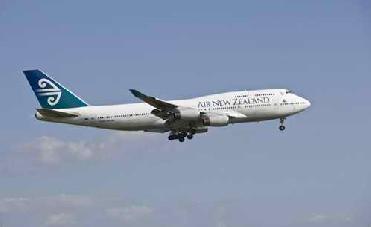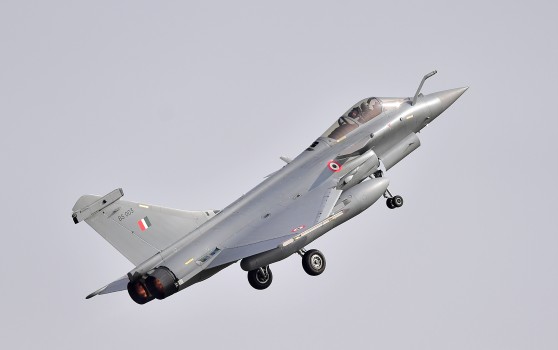
Air New Zealand's Boeing 727-400. Photo from Airlines' official site
WELLINGTON (BNS): The clean fuel campaign in aviation is gaining ground, as Air New Zealand has become the latest airline to test fly its aircraft running on second-generation bio-fuel.
The two-hour flight of Air New Zealand's Boeing 747-400 saw a number of tests using a bio-fuel blend. The engines were shut down and restarted to check the affect of bio-fuel.
The officials announced that the aircraft cleared all the performance criteria during trial.
With environment becoming a new concern, airlines across the world have been planning to switch to vegetable fuels. Earlier this year, Virgin Atlantic flew its aircraft from London to Amsterdam using fuel mixed with coconut and babsu oil. Continental Airlines is also planning to test its 737-800 aircraft running on a bio-fuel blended with traditional fuel. The test is scheduled to take place in the first week of January. After the successful test, Air New Zealand hopes to use 10 per cent bio-fuels on its domestic fleet by end of
2010.
The test was conducted with the help of aircraft manufacturer Boeing and engine maker Rolls Royce. The RB211 engine on 747-400 was specially prepared for the tests. The bio-fuel was sourced from jatropha tree. Air New Zealand sourced jatropha used in the tests from India, Tanzania, Malawi and Mozambique.
The aircraft flew on an equal mix of Jet A1 and bio-fuel. The airline announced that the aircraft met all parameters during the test sending an encouraging signal. The experiment would go on to help aircraft and engine manufacturers to certify if existing planes could be converted for bio-fuel use.
Fuel mixing firm UOP, which was also part of the test, hopes to licence the technology in the coming months. Carbon emissions by aircraft have been a cause of concern and the countries across the world are planning to introduce stringent environment laws.
The switch over to bio-fuels has been planned for surface transport. But a number of issues were involved when it came to flying aircraft on bio-fuels.
Air New Zealand's chief executive Rob Fyfe was quoted by the media as saying that bio-fuels would also help in bringing down the running costs of the carriers. Flying on a blend of traditional and bio-fuel does not mean that carbon emissions would be completely stopped but it would certainly come down significantly, argue those in favour of alternative sources.
The airlines in western countries are worried about high cost they will have to pay for violating strict environment laws. The British parliament has already enacted a legislation bringing aviation sector under its purview. Under this legislation, airlines would be held
liable for high carbon emissions.
The officials of Air New Zealand said that if the planned environment laws in the country were implemented, it would cost the airline around 20 million New Zealand dollars every year.
 Previous Article
Previous Article













The Indian Air Force, in its flight trials evaluation report submitted before the Defence Ministry l..
view articleAn insight into the Medium Multi-Role Combat Aircraft competition...
view articleSky enthusiasts can now spot the International Space Station (ISS) commanded by Indian-American astr..
view article